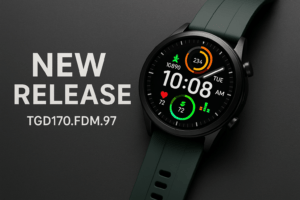It wasn’t always inevitable. In fact, back when Meta was still navigating its transformation from social media giant to AI powerhouse, few could have predicted the staggering milestone the company would one day reach: one billion monthly users actively engaging with Meta AI. But here we are. And behind that number? Stories. People. Change.
A Quiet Beginning in a World Already Loud
Meta didn’t enter the AI race as the first mover. By the time it rolled out its early generative models, other players had already shaped the market, captured headlines, and created massive ecosystems. But Meta’s strategy was never about just being first. It was about being present where people already lived, communicated, and shared.
“I didn’t download a separate app,” says Nadia Gomez, a high school teacher in San Antonio. “One day, I just noticed I could ask questions right there in Messenger, and the responses were better than Google. Not faster. Smarter.”
That seamless integration was the quiet power move. While competitors built walled gardens, Meta embedded AI into Facebook, Instagram, and WhatsApp — platforms that already commanded daily attention.
The Engineers Behind the Curtain
Walk into one of Meta’s low-lit innovation hubs in Menlo Park, and you’ll hear the same refrain: “How do we make AI feel less like a tool, more like a conversation?” It was never just about spitting out facts. It was about remembering the tone of your last message, suggesting words when you’re stuck, or generating an image that feels like your thought brought to life.
“The hardest part wasn’t the math,” one Meta AI engineer, who requested anonymity, confides. “It was empathy. We had to train the models to understand not just language, but intention. Frustration. Humor. Doubt.”
The Unexpected Users
Among the billion are not just tech enthusiasts or college students experimenting with prompts. There’s the farmer in rural India using Meta AI in WhatsApp to understand fertilizer choices. There’s the single mother in Ohio asking Meta AI to help draft an email to her child’s school. There’s the Ukrainian refugee navigating new government forms with the help of Meta’s translation model.
These aren’t edge cases. They’re the spine of the story. AI didn’t go viral through virality. It became vital by being useful, quietly, consistently, globally.
Risks, Mistakes, and Learning Publicly
Of course, it wasn’t all seamless. There were the moments of hallucinated facts, cultural misreads, and accusations of algorithmic bias. Meta, to its credit, didn’t hide. It issued patch notes, opened some of its models to open-source communities, and held public Q&A sessions about safety features.
Critics argue that with a billion users comes a billion potential misfires. And they’re right. But there is an evolving ecosystem around Meta AI now — not just engineers but ethicists, artists, researchers, and even critics shaping its direction.
The Future Doesn’t Feel Like Science Fiction Anymore
It used to be that imagining AI in your daily life meant picturing robot assistants or sleek, sterile interfaces. But now? AI lives in your WhatsApp thread, your Facebook feed, your Instagram comment draft. It suggests how to reply to your friend’s sad story. It finds you a recipe based on what’s in your fridge.
“Meta AI isn’t this futuristic overlord,” says Anika Baird, a UX researcher. “It’s like a friend who doesn’t talk too much but listens when you need it.”
What One Billion Really Means
The milestone itself is impressive. But the truth is, one billion monthly users isn’t just about the tech. It’s about permission. A billion people decided, consciously or not, that Meta AI belonged in their lives.
Some use it to learn. Others to connect. A few to escape. But all of them shaped its trajectory. And that’s the secret not written in press releases: Meta AI didn’t grow because it dazzled. It grew because it helped.
The Human Thread Through It All
In the end, Meta AI‘s story is not about machine learning or neural nets. It’s about moments. Real ones. A student finally understanding algebra. A grandmother translating a message to her grandchild. A creator finding the perfect phrase when they thought they had none.
One billion is a number. But the journey to it? That’s a billion beats of the human heart.




